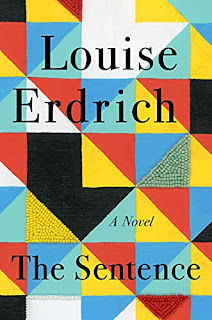Number of Books Read - 130Fiction - 105:
- Novels - 98
- Short Story Collections - 7
Nonfiction - 25:
- Memoirs - 5
- Biographies - 3
- Books on Books - 3
- True Crime- 1
- History - 6
- Science - 2
- Entertainment - 1
- Politics - 1
- Travel - 3
Total books are up 10 from 2020, and I seem to have settled comfortably into a 120-130 book per year range for the last several years. (Strange, though, that I don't feel very that optimistic about hitting those numbers in 2022).
- Books Written by Men - 70
- Books Written by Women - 55
- Books Written by Both - 5
This is the second year in a row that I've read almost as many books authored by women as by men. Until last year, my male-to-female author ratio always ran 2-1 in favor of male authors.
- Audiobooks - 24
- E-Books - 32
- Library Books - 85
- Review Copies - 25
- From My Shelves - 21
- Abandoned/DNF - 16
- Average Pages Read per Day: 120
- Total Pages Read: 43,700
The source-mix of my books is very similar to last year's mix, but I'm seriously considering a change of plan for 2022. I find myself getting a little burned out on chasing so many new books all the time, so I may concentrate more on older stuff and a lot of "catch-up" reading that I never seem to get around to. That would mean even fewer review copies than ever...a number that has been dropping from year-to-year already. I'll see how that works out.
My goals coming into the year were simple ones: read more in translation, more from my own shelves, more literary classics, more from the years 1920-1979, more foreign authors from countries other than the UK and Canada, and catch up on a few of the detective series I follow. Let's just say I did better on some of the goals than on others:
- 12 translated works (happy enough)
- 21 from my own shelves (satisfied)
- 1 literary classic (embarrassed)
- 11 from 1920-1979 (frustrated)
- 14 early books from my favorite series (happy enough)
- 13 foreign authors not from the UK or Canada (happy)
- 30 books by UK and Canadian authors (happy)



































